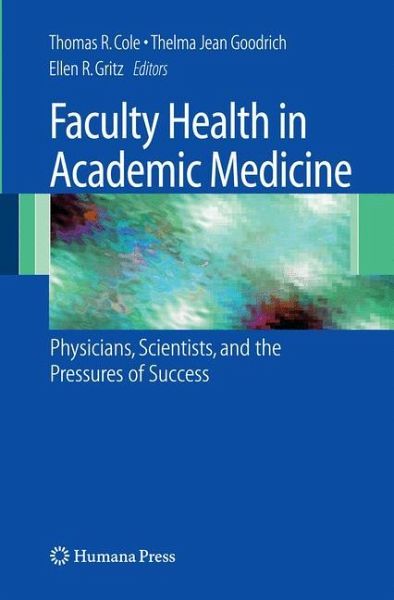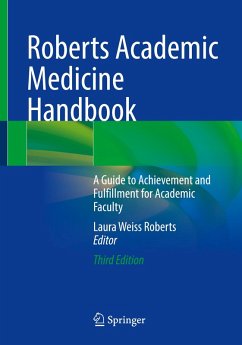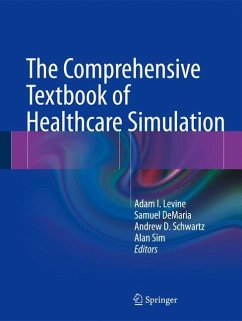
Faculty Health in Academic Medicine
Physicians, Scientists, and the Pressures of Success
Herausgegeben: Cole, Thomas; Goodrich, Thelma Jean; Gritz, Ellen R.
Versandkostenfrei!
Versandfertig in 6-10 Tagen
80,99 €
inkl. MwSt.

PAYBACK Punkte
40 °P sammeln!
In the 21st century, academic medical centers across the United States continue to make scientific breakthroughs, to make improvements in patient care, and to p- vide the most advanced information and guidance in matters affecting public health. The signs of growth are everywhere-in new research buildings, new pa- nerships with industry, new forms of molecular medicine, and new sensitivity to the role of the human spirit in healing. This growth is due in large part to the dedication and productivity of our faculty, who are providing more patient care, more research, more teaching, and more com...
In the 21st century, academic medical centers across the United States continue to make scientific breakthroughs, to make improvements in patient care, and to p- vide the most advanced information and guidance in matters affecting public health. The signs of growth are everywhere-in new research buildings, new pa- nerships with industry, new forms of molecular medicine, and new sensitivity to the role of the human spirit in healing. This growth is due in large part to the dedication and productivity of our faculty, who are providing more patient care, more research, more teaching, and more community service than ever before. Today, there are roughly 135,000 physicians, scientists, and other faculty wo- ing at approximately 125 academic medical centers around the country. Increasingly, they are asked to do more with less. Since the 1990s, academic medical centers in the United States have lost the financial margin they once enjoyed, thereby putting new pressures on research, education, and clinical care. Medical school faculty, previously given funded time for teaching and research, are increasingly drafted to bring in clinical revenues to cover their salaries. Dedicated to the missions of research, teaching, and care, our faculty have responded well to these challenges and perform at a very high level. However, we are beginning to see the results of ongoing stress.












